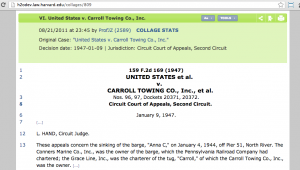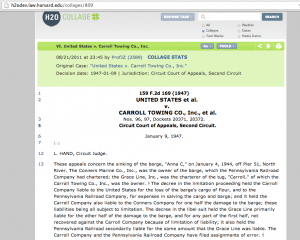Every week, we add to the H2O database of cases. If a case that you want to collage and add to a playlist isn’t available in H2O yet, you can request it by filling out and submitting a short form here. (Note: you will need to be logged in as a user to request cases.) Once you request a case, you should receive an e-mail notifying you that the case request has been submitted (if you don’t, please let us know!). We will try to locate and ingest the case into our database as soon as possible.
If you need a specific case really quickly, in addition to submitting the request via the form above, please also send us an e-mail to h2o [at] cyber [dot] law [dot] harvard [dot] edu, and we’ll try to get it as a priority item.
By the way, if you see that a case has a typographical error, please let us know by clicking on the “Report Error” button at the side of the window. We are implementing a system so that we can emend those errors. It’s a little tricky to do technically, especially once a case has been collaged, but our crackerjack developers have created a way to do so by versioning cases.

